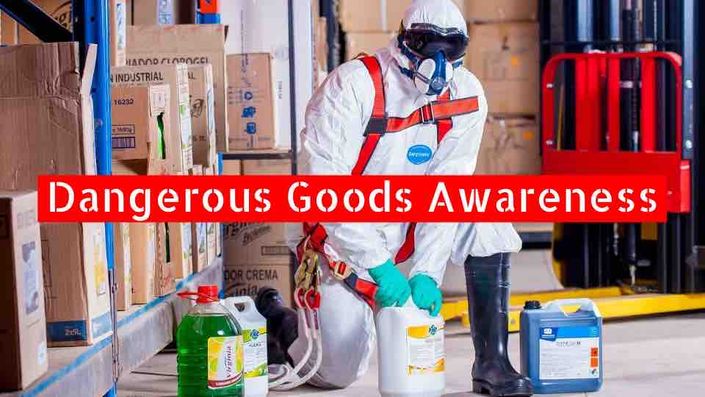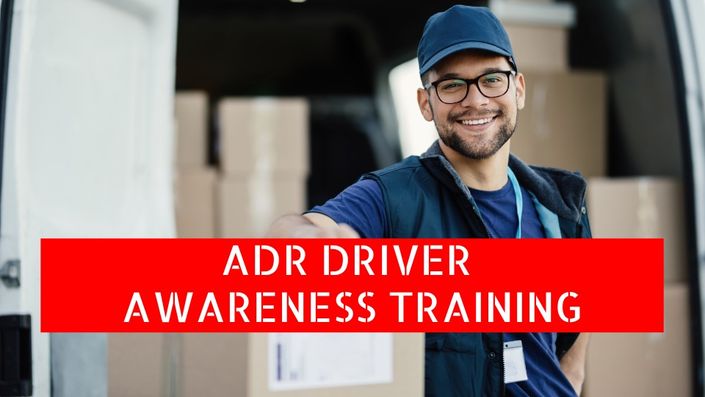About the course
Training in the general provisions of ADR for the carriage of dangerous goods by road is a legal requirement for all persons involved in their transport (ADR 1.3.2.1).
This includes manufacturers, transport office staff, packers, loaders, drivers if they do not hold an ADR licence, and all persons involved in the preparation and transport of dangerous goods packed as limited quantities and excepted quantities.
The objective of this course is to provide you with an overview of the ADR provisions and how they are applied for packaged dangerous goods (those in packages such as drums and IBCs). The course is entirely online and allows you to work through at your own pace.
Note: we have other courses available which are more specific to certain job roles, such as our limited quantities training, dangerous goods awareness training, and ADR driver 1.3 training. This course provides a higher level overview and is more intensive than those courses. For example, if you are a driver carrying goods below the ADR 1.1.3.6 threshold, our ADR driver awareness course may be more suitable. If you are a transport planner, this course will go into more detail and may be more beneficial than our dangerous goods awareness course.
Downloadable guidance is included within the course for you to reference back to at a later date, we'll also post you a free copy if you're based in the UK or Ireland. Lessons are accompanied by quizzes and complex provisions are clearly explained by video with accompanying examples and exercises.
The course is video based and can be taken at any time. All videos in this course have captions (subtitles) in English for those who require them (other languages are available on request, please confirm prior to purchase).
The course is priced at £82.50 per user plus VAT (VAT is charged depending on your location) and a tax invoice is sent automatically after purchase. Multiple purchase discounts are available from the button above.

Classification
Our video based course introduces you to the classification principles in ADR, the hazard classes, and recognising dangerous goods.

The Dangerous Goods List
Key to understanding how ADR works is learning to navigate the Dangerous Goods List. We show you how to do this accompanied by interactive exercises.

Course handbook
Our course handbook summarises all the important information for you. Download the pdf and we'll post a free copy if you're in the UK or Ireland.
Course content
- Class 1 (8:33)
- Class 2 introduction
- Class 2: summary of hazards (7:08)
- Class 3 (1:16)
- Class 4 (4.1, 4.2 and 4.3) (6:49)
- Class 5.1 (2:12)
- Class 5.2 (4:39)
- Class 6.1
- Class 6.2
- Class 7 (2:17)
- Class 8
- Class 9 (2:01)
- Environmentally hazardous substances
- Waste classification
- Summary exercise (0:38)
- Questions
- What are the 'limited quantities' provisions? (0:59)
- How to calculate whether the limited quantities provisions of Chapter 3.4 can be used (3:06)
- Packaging performance requirements for limited quantities
- Marking of packages with the limited quantities mark (1:10)
- Marking of packages with orientation arrows (0:36)
- Examples of how the limited quantities provisions work (2:46)
- Overpacks containing goods packed as limited quantities
- Documentation requirements for limited quantities
- Questions
- Format and responsibility (2:19)
- Principle information required
- Tunnel restrictions
- Order of the dangerous goods description (exercise)
- Supplementing generic and NOS entries
- Supplementing a NOS entry (exercise)
- Additional information required
- Documentation retention requirements
- Multimodal requirements: sea transport
- Multimodal requirements: air transport
Customer portal
If you purchase courses in bulk from us, we'll set you up with access to our customer portal, so you can see who's enrolled and completed the courses you have purchased.
You can then export this data in a variety of formats for your internal training records.
Many of our courses are also available as licensed SCORM packages.

Check out our other courses:
Depending on your job role and the goods you are involved with, we may have other courses that are more suitable for you, or you may require additional training.




